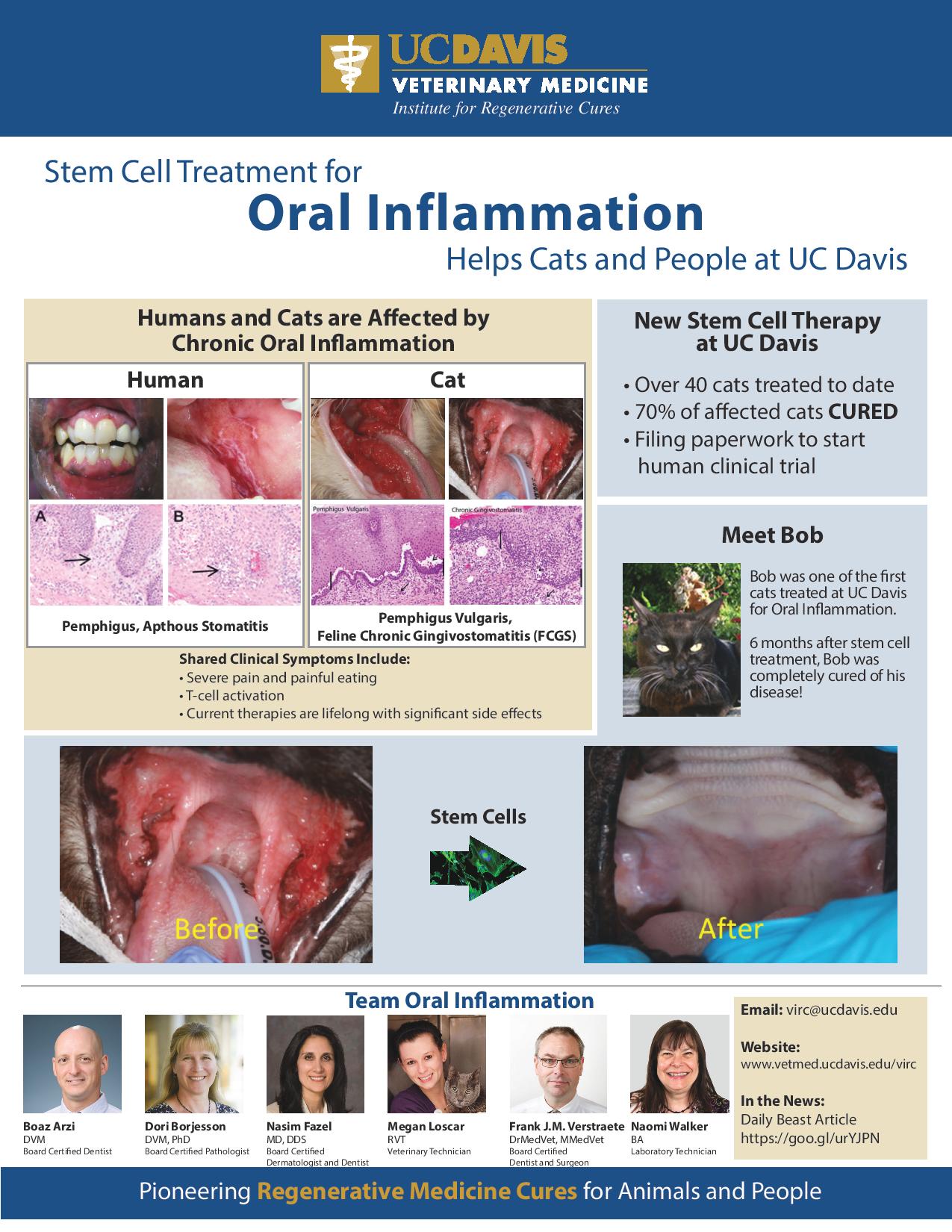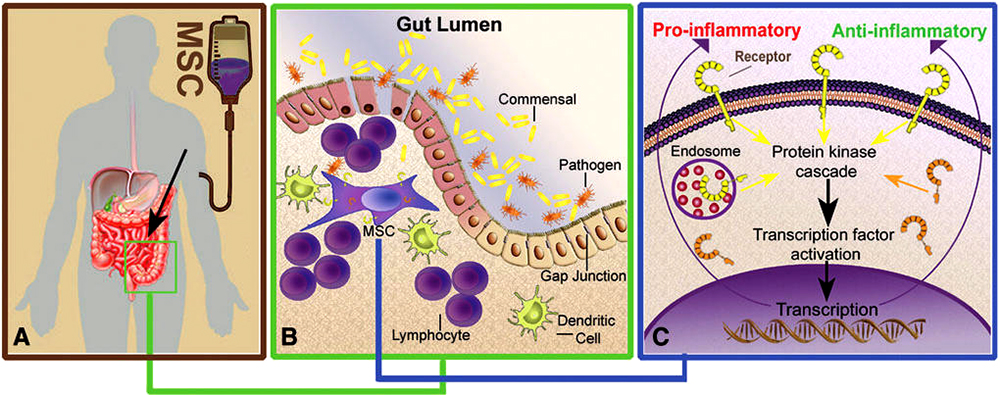Chronic Inflammation
Introduction
MSCs have a profound regenerative ability attributed, in part, to their ability to modulate both the innate and adaptive immune systems. Although the mechanisms of immunomodulation remain partially elusive, MSCs inhibit T-cell proliferation, alter B-cell function, downregulate major histocompatibility complex (MHC) II, and inhibit dendritic cell maturation and differentiation. Because of these functions, MSCs are currently in phase I–III human clinical trials for immune mediated diseases.
Studies
1. Chronic Gingivostomatitis in Cats

2. Inflammatory Bowel Disease in Dogs
Inflammatory bowel disease (IBD) in dogs often involves lifelong steroid therapy, which holds the risk for a variety of potentially serious complications. Because of the ability to regulate immune responses and facilitate tissue regrowth or repair, we believe mesenchymal stem cells (MSCs) may help to decrease the abnormal immune response and the accompanying inflammation observed in dogs with IBD. Initial studies focused on determining the effect of gut microbe association on MSC function. MSCs associated with a remarkable array of enteric pathogens and commensal bacteria. MSC interactions with two model organisms, the pathogen Salmonella typhimurium (ST) and the probiotic Lactobacillus acidophilus (LB), were further investigated. While ST readily invaded MSCs, LB adhered to the MSC plasma membrane. Neither microbe induced MSC death, degeneration, or diminished proliferation. MSC-microbial interaction significantly increased transcription of key immunomodulatory genes, coupled with significantly increased secretion of anti-inflammatory factors. MSC-ST co-incubation resulted in significant augmentation of MSC inhibition of mitogen-induced T-cell proliferation. MSC-microbe interactions have a profound effect on MSC function and may be pivotal in a variety of clinical settings where MSCs are being explored as potential therapeutics in the context of microbial communities (See figure below).

Additional Links
For current clinical trials click below:
Investigators: Stan Marks, Amir Kol, Satya Dendkar and Dori Borjesson
